“Take Back the Night” is a national and international vigil in protest of sexual assault and in support of sexual assault victims. Stanford’s annual vigil was held yesterday.
While the event was originally supposed to open with student performances in White Plaza, followed by a candlelit march that would lead to a reception at the Women’s Community Center, the performances were relocated to the Women’s Community Center and the candlelit march was cancelled due to weather conditions.
The event focused on raising awareness of the prevalence of sexual assault on campus.
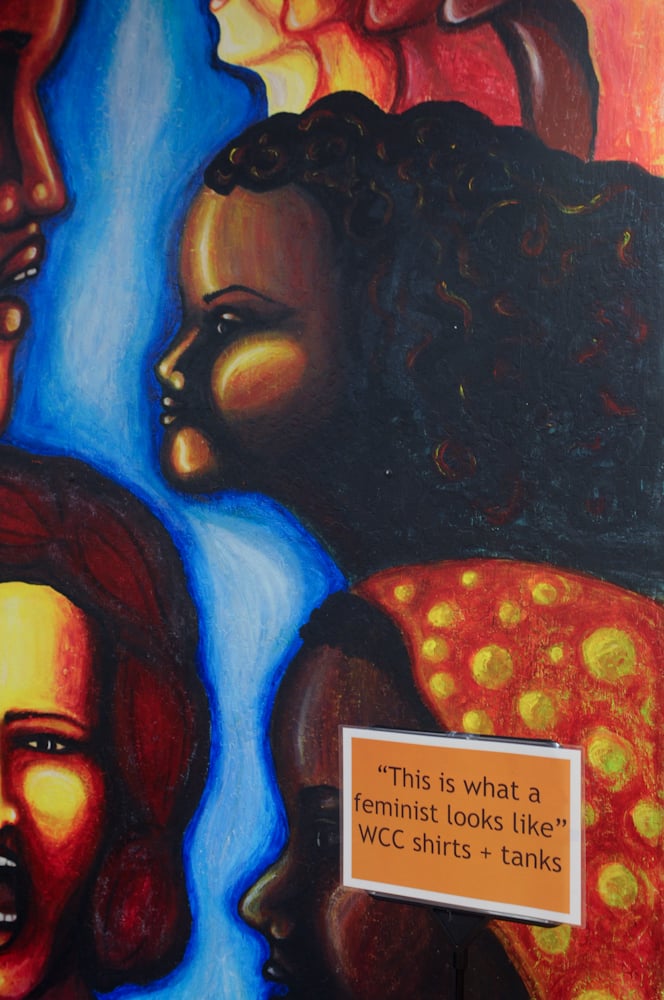
The Women’s Community Center sells shirts reading “This is What a Feminist Looks Like” on the front. The Center hopes to break existing stereotypes concerning feminists, in addition to sparking conversation over the definition of feminism.
“I really think the definition of feminism at Stanford is that everyone creates their own definition,” said Corinne Coates ’12, a Peer Health Educator (PHE), who served as master of ceremonies for the event. “It means something different to everyone.”
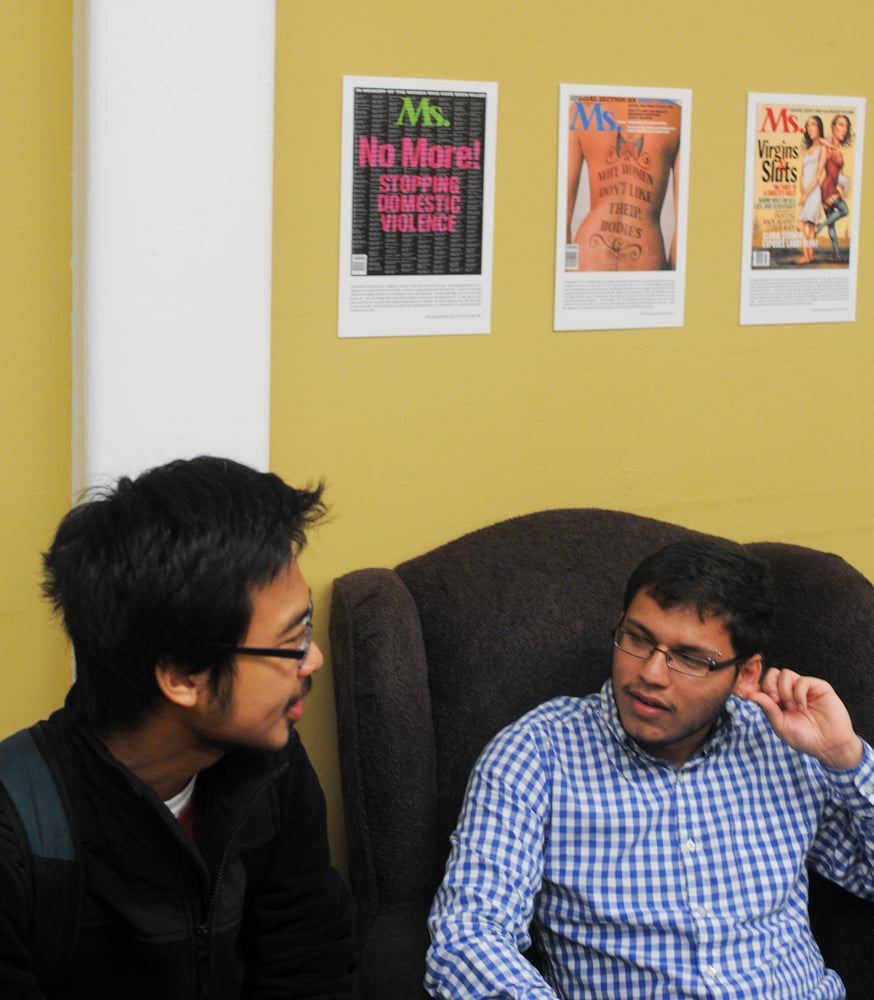
The attendees at the event constituted a highly diverse group of students, with an equal turnout of both men and women. Various covers of Ms. Magazine decorate one wall of the Women’s Community Center. Ms. Magazine celebrated its 40th anniversary in 2011. The publication was co-founded by Gloria Steinem and Letty Cottin Pogrebin as an arm of the feminist movement.
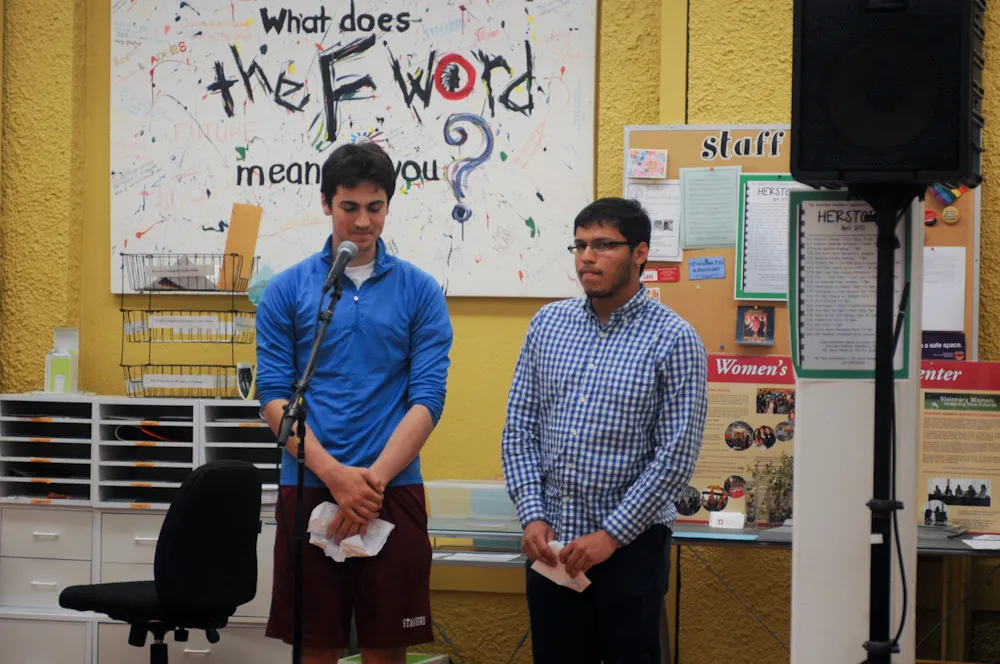
Men Against Abuse Now (MAAN) presidents discussed the importance of men supporting women as they face continued violence and oppression in society. Both current presidents joined the organization because of the influence of their freshman Resident Assistants, who were involved in MAAN themselves.
“When you bring up the word ‘feminism,’ there are a lot of stereotypes about the word,” said Donnovan Somera Yisrael ’89, faculty advisor of MAAN, regarding the role of men on the issue of violence against women. “It is about calling men on their entitlement and privilege. But it’s not about hatred.”
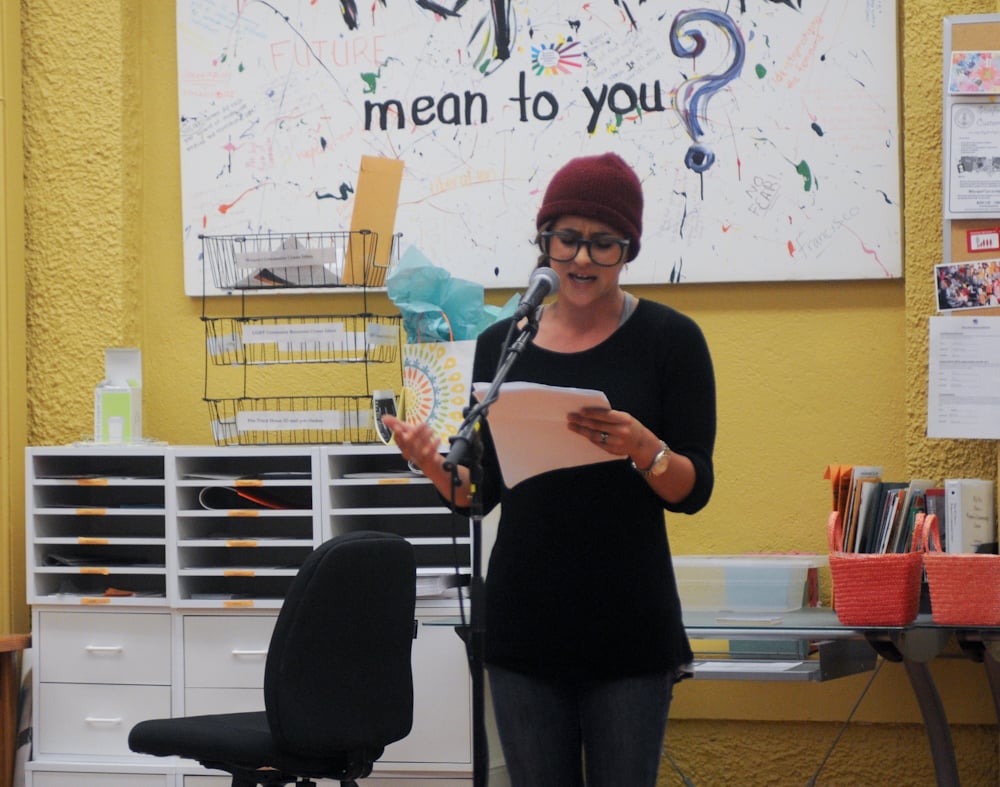
Erica Castello ’12, from Stanford Spoken Word, read her poem, “Genius,” which describes the experience of a victim of sexual assault. One line of the poem reads, “Rape is an active word turned passive,” describing the transition of the mental state of the victim, who initially feels rage against her perpetrator and then begins to question the blame of the assault, wondering if she too is culpable.
“That’s one of the big steps, is letting a victim define their own experience,” said Mona Thompson ‘13, publicity coordinator for the Women’s Community Center. “Understanding that somebody did something to you that was wrong.”
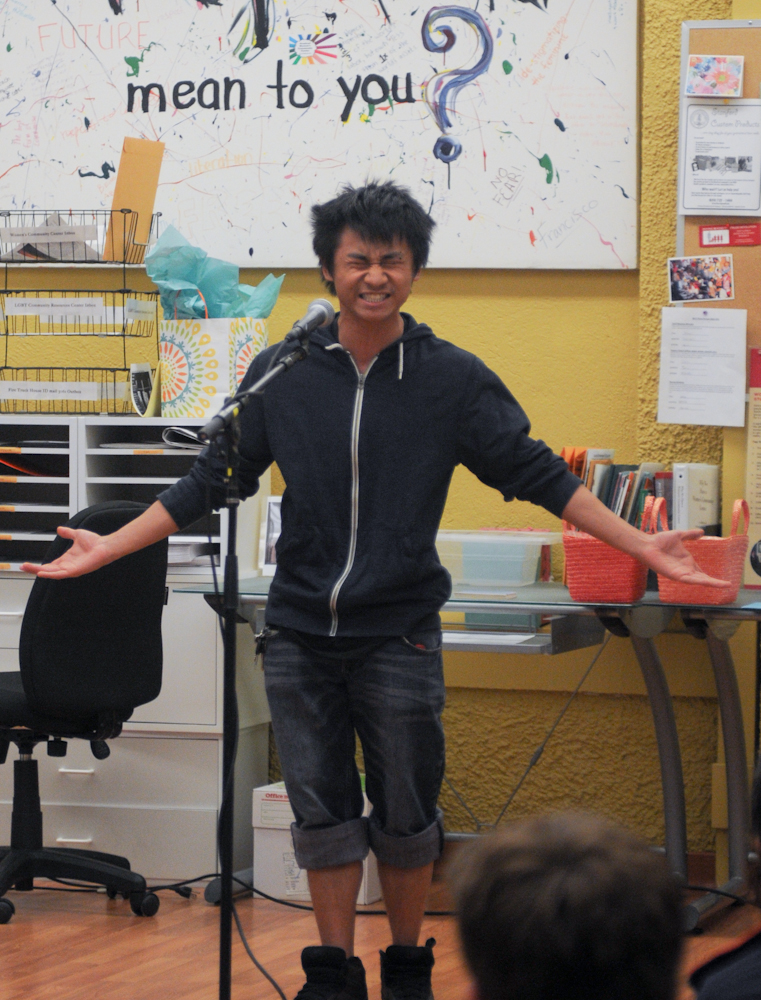
Bryant Killa-Cali Phan ’15 performed his poem, “Rebuilding a Universe,” describing the inner conflict of a man who does not want to be feared by his mother simply because of his gender. “Mama, there is nothing to fear,” he tells her, though as he grows in age, she becomes more and more guarded, she who told him that there were “concrete hearts” behind all men. His anguish related to the confrontational aspect of discussing sexual assault that Thompson believes prevents many males from active participation in organizations created to fight sexual assault.
“There’s a difference between [the idea that] most perpetrators of assault are men, but not most men are perpetrators,” Thompson said. “I know guys that feel very much like they’re put on the defensive in issues of sexual assault.”
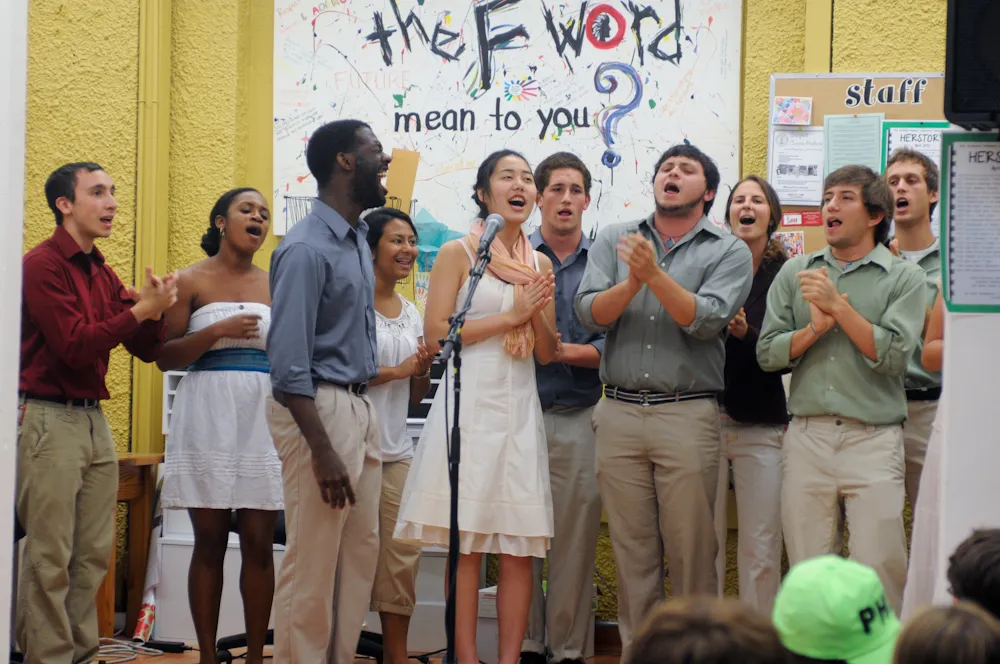
Talisman performed the songs “Wanting Memories” and “One by One.” A speaker from the group prefaced “Wanting Memories” by telling the audience that it is open to interpretation and then translated “One by One” into English. The song was originally sung in opposition to apartheid in South Africa, and its intention to oppose a common oppressor seemed fitting to the event. The song lyrics staunchly assert, “One by one, they will not succeed.”
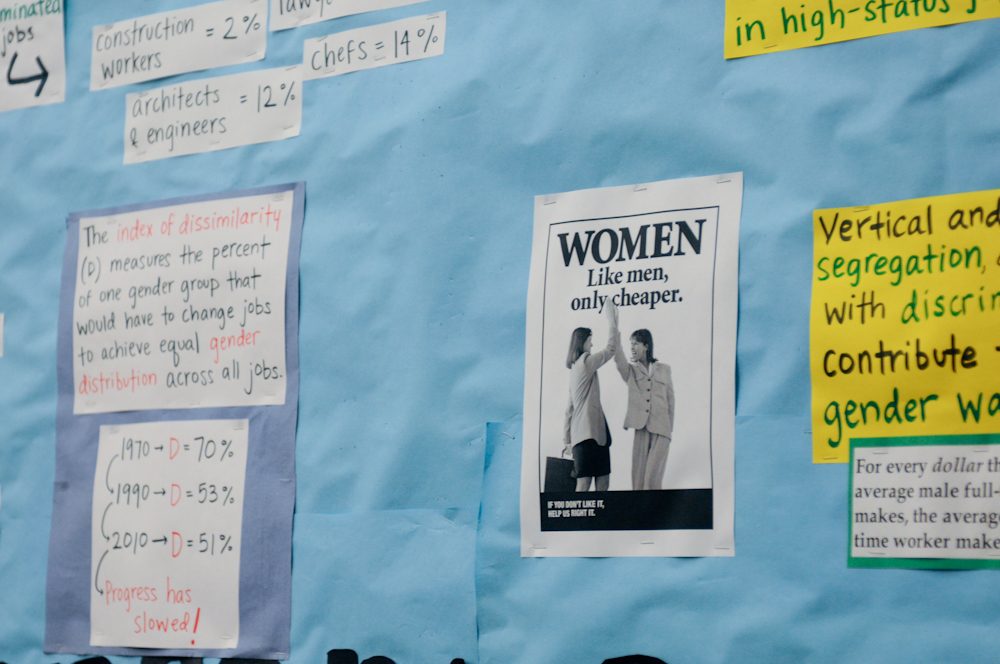
Signs at the Women’s Community Center serve as a reminder of the inequality that continues to permeate the workforce, with women still paid significantly less than men nationally. The yearly statistics to the left reflect the dramatic decrease in actions being enacted to equalize this imbalance, as compared to those taken in the 1970s and 1980s. In the 1970s, a group of Stanford women who called themselves the Women’s Collective began to meet, advocating for women within an academic setting typically dominated by men. After appealing to the University for space, the Coalition was eventually granted space in the Old Fire Truck House, re-named the Women’s Center. The three tenets of the center’s mission are leadership, scholarship and activism.
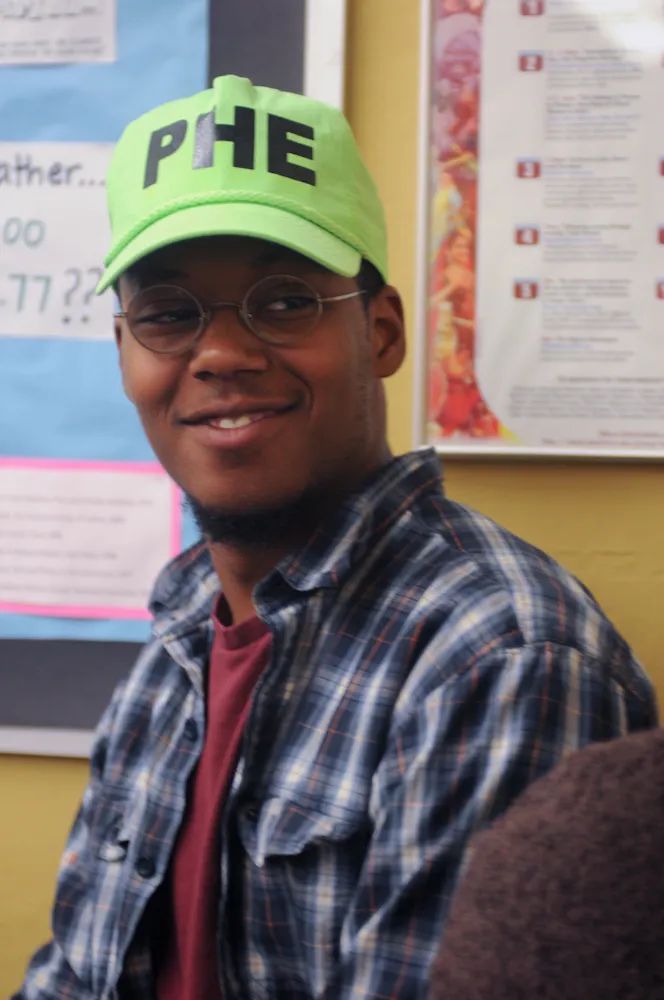
Ezekiel Richardson ’13 sported one of the bright green PHE hats that dotted the crowd at the Women’s Community Center, as many PHEs appeared at the event. The event was organized by the Stanford PHE program in collaboration with the Women’s Community Center (WCC), Men Against Abuse Now (MAAN), and the Office of Sexual Assault and Relationship Abuse Education and Response (SARA). To reach a greater student population, PHEs this year were especially vocal in promoting the event to their dorm inhabitants.
– Erika Alvero Koski